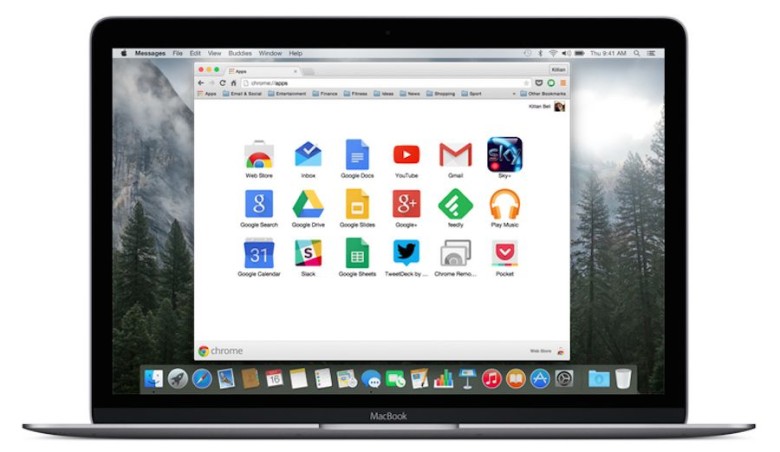

- #Google chrome updates for mac full#
- #Google chrome updates for mac trial#
- #Google chrome updates for mac windows#
But FLoC had much more serious problems-and it’s these that dealt the real killer blow.įLoC was designed in laboratory conditions. Google referenced the CMA investigation when announcing its rethink. The U.K.’s Competition and Markets Authority (CMA) is already investigating “whether could cause advertising spend to become even more concentrated on Google’s ecosystem at the expense of its competitors,” and a similar EU investigation is looking into whether “Google has made it harder for rival online advertising services to compete.” Present those IDs to websites and advertisers, anonymising individual users while enabling group targeting.īut it’s a Google solution to a Google problem. Mask user identities by assigning them group or cohort IDs with roughly similar interests. So, what was wrong with FLoC? The idea itself has promise.
#Google chrome updates for mac trial#
Instead, Google “plans to conclude this origin trial in the coming weeks and incorporate input, before advancing to further ecosystem testing.”
#Google chrome updates for mac full#
“It's become clear,” Google said last week, “that more time is needed across the ecosystem to get this right.” FLoC itself, which has been secretly installed on millions of users’ browsers to run an origin trial, was to evolve into a full update, replacing cookies. Its Federated Learning of Cohorts, FLoC, has been roundly condemned by the privacy lobby, other technology firms, even advertisers. Google’s first solution to replace tracking cookies with “privacy-preserving APIs which prevent individual tracking while still delivering results for advertisers and publishers” has been a PR nightmare. Why “at least”? Well, its initial attempts to find “privacy-preserving” alternatives have failed. Put simply-despite 81% of Chrome users fearing the risks of online tracking, Google is leaving that tracking in place for at least two years longer than promised. So far Google has sided with advertisers.” “It’s as though Google has defined two sides,” researchers Tommy Mysk and Talal Haj Bakry told me.

Meeting the needs of the advertising industry, while preserving the privacy of 2.6 billion users, is starting to look like an impossible puzzle for Google to solve. Google is already under water and appears to be in desperate need of major reforms well before 2023.” Google and the ad industry “will continue to track and profile users via cookies until at least 2023,” Brave responded, “and probably indefinitely via login-based Google account tracking in Chrome. The likely new timeframe to “phase out third-party cookies a three month period, starting in mid-2023 and ending in late 2023.”
#Google chrome updates for mac windows#
Whether by accident or design, Google confirmed its surprise delay to this removal of tracking cookies in among the news of iOS 15 and Windows 11.

“We’re making explicit, that once third-party cookies are phased out, we will not build alternate identifiers to track individuals as they browse across the web.”īut now it’s all change. “Chrome announced its intent to remove support for third-party cookies” by early 2022, the company assured us in March. 72% of people feel that almost all of what they do online is being tracked by advertisers, technology firms or others, and 81% say the potential risks from data collection outweigh the benefits.”īut until this week, Google has been telling us that it’s fixing the problem, delivering its self-styled privacy first web.
:max_bytes(150000):strip_icc()/002-how-to-update-chrome-on-a-mac-5f8c3e2fc5984921bf3fe540fbff25b4.jpg)
This “proliferation” of harvested user data, it said back in March, has “led to an erosion of trust. Google admits the problem is out of hand.


 0 kommentar(er)
0 kommentar(er)
